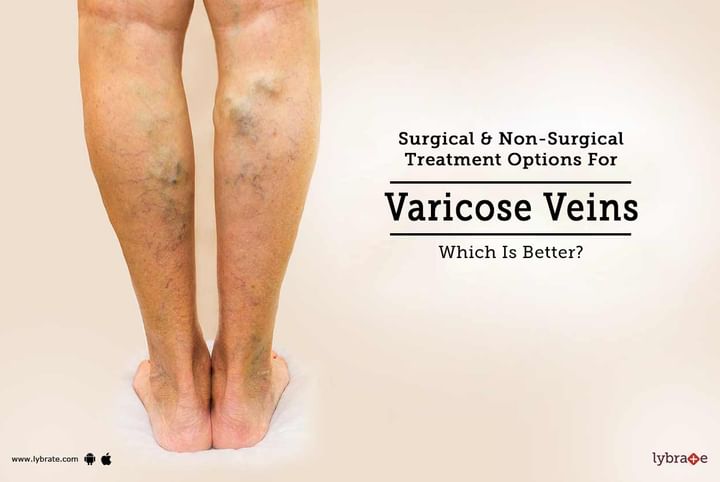Surgical & Non-Surgical Treatment Options For Varicose Veins - Which Is Better?
Varicose veins is a medical condition where the veins become large and swollen and begin to appear so especially on the legs and feet though any vein can become varicose. This happens when the valves do not function properly and allow the blood to flow in the opposite direction or to pool. Due to this, the veins enlarge, and they begin to appear blue or dark purple on the skin. Legs and feet are the most commonly affected areas because standing or walking increases the pressure on the veins in the lower part of the body.
Symptoms of Varicose Veins
Apart from the twisted and bulging appearance like cords in blue and dark purple, varicose veins may include other painful symptoms as well such as-
- Throbbing feeling and aching, heavy feeling in the legs.
- Muscle cramping and swelling in the legs.
- Severe pain after sitting or standing for a long period of time.
- Bleeding varicose pains.
Treatment for Varicose Veins
In severe cases, varicose veins may rupture and form varicose ulcers on the skin. To avoid complications, it is best to get varicose veins treated before it worsens. Varicose veins can be treated in two ways- either by surgeries or by non-surgical methods, that is, by home remedies, medicines or non-invasive methods.
Surgical methods to treat Varicose Veins
Vein Stripping - Under general anesthesia, two cuts are made one below the groin and one behind the knee joint. The affected vein is then tied or clamped off at the top incision using a technique called vein ligation
Phlebotomy is another method where smaller incisions are made along the vein and using surgical instruments, the vein is pulled out.
Though treating varicose veins by surgeries is the most effective method, it involves several risks. Patients take a longer time to recover from surgeries than non-surgical methods. The sedation may cause complications. Chances of nerve injuries cannot be negated which may lead to fatal conditions such as deep vein thrombosis.
Non-surgical methods to treat Varicose Veins
- Radiofrequency ablation is a method in which heat generated electromagnetic waves are used to close off the veins.
- Endogenous laser ablation- in this case, lasers are used to close off veins.
- Sclerotherapy is another method where a liquid or foam is injected into the affected vein to close it off.
Although big veins cannot be treated by these methods or additional treatments may be required, these methods are not only effective but also free from cuts and stitches or anesthesia. Performance of these treatments need not always take place in hospitals, special clinics can cure varicose veins using these methods. It is always advisable to consult doctors for treating varicose veins who can suggest the best treatment needed to cure varicose veins.



+1.svg)
